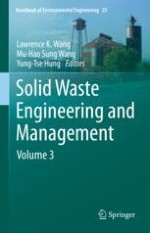
2022 | OriginalPaper | Chapter
1. Solid Waste Management in the Tourism Industry
Authors : Mohd Suffian Yusoff, Mohamad Anuar Kamaruddin, Mohamad Haziq Mohd Hanif, Faris Aiman Norashiddin, Abdubaki Mohamed Hussen Shadi, Lawrence K. Wang, Mu-Hao Sung Wang
Published in: Solid Waste Engineering and Management
Publisher: Springer International Publishing
Activate our intelligent search to find suitable subject content or patents.
Select sections of text to find matching patents with Artificial Intelligence. powered by
Select sections of text to find additional relevant content using AI-assisted search. powered by